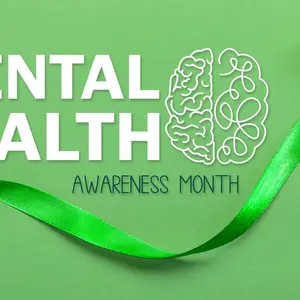

WELLthier Living and Aging

WELLthier Living and Aging
5 Things Your Wrinkles Say About Your Health (And Tips For If You Have Them)
Our skin reveals so much about what’s actually happening inside of our bodies. And wrinkles can tell us so much more than what was once thought. In fact, there are five key wrinkle patterns that have clinical studies behind them to inform you of what might be going on within your body.
1. Deep Wrinkles In Your 40s And 50s = Low Bone Density
A 2011 Yale study of 100 women in their 40s and 50s within their first three years of menopause found that the women with the deepest wrinkles had the lowest bone density. Low bone density puts us at risk for osteopenia and osteoporosis.
This may not be just because you’re lacking in calcium. Yes, we all need to make sure we’re upping our calcium, magnesium, and vitamin D as soon as we hit 40, as well as being mindful of your acid to alkaline food intake to prevent the blood from pulling calcium from the bones unnecessarily, but it can also, and often more so, be tied to low testosterone production (so you would also have low libido and a hard time building muscle or converting fat to muscle).
To rectify this, you’ll want to make sure you’re eating several servings of wild shellfish each week and that you’re getting your testosterone tested by a functional medicine practitioner.
2. An Earlobe Wrinkle Could Be An Early Warning Sign Of Heart Trouble
Look in the mirror for a diagonal wrinkle in your earlobe. In 1973, a researcher named Sanders Frank found that men and women who have a crease here had a much higher probability of heart disease (revealed during CT scans) than people who didn’t. A later study in 2012 at Cedars-Sinai Medical Center was based on this.
The theory is around blood vessels. Doctors explain that if wrinkles can cause the collapse of tiny blood vessels in the earlobe, this can also be a reflection of changes in blood vessels around the heart.
Our heart beats for us every minute of every day. We must think about taking care of it through the foods that we eat. Top foods to focus on are tomatoes, pomegranates, blueberries, acai, cacao, onions, shiitake and maitake mushrooms.
3. If You Look Younger Than You Are = Low Blood Pressure
A 2013 Study done at Leiden University Medical Center in the Netherlands found that both men and women with genes for longevity were less likely to have wrinkles on the skin of their upper arms.
Also, less facial sagging correlated to lower blood pressure than other people who were of the same age.
This means they have a lower risk of succumbing to cardiovascular disease (CVD), such as heart disease and stroke.
Commenting on the link between female facial appearance and cardiovascular disease risk Dr. David Gunn, Unilever Senior Scientist, said:
“We identified that blood pressure was driving the link between cardiovascular disease risk and perceived age. It is the first time a link between low blood pressure and youthful looks has been proven. This finding gives rise to new ways to communicate the significant additional benefits of a healthy lifestyle. Not only this, but we also found that the feature in the face that blood pressure was linked to was not skin wrinkles but likely what we term as the ‘sag’ in the face. The exciting thing is further investigations will enable exact pin-pointing of the feature in the face that signposts an individual’s blood pressure.”
More reason for us to live a healthy lifestyle!
4. Forehead Wrinkles = Stress Overload
Overworry-ers and those who tend toward anxiety can often have more forehead and brow wrinkles than others according to a NYC dermatologist.
The reason that excessive, prolonged stress causes us to age faster and get more wrinkles is that the adrenal glands are pumping out the stress hormone cortisol on overload. Excessive cortisol degrades collagen in the skin.
Stress is a palpable part of modern everyday life and more and more people are finding themselves in adrenal fatigue as a result.
5. Accelerated Aging = Too Much Sugar
We’ve talked about it A LOT—the white stuff (sugar) is a true killer—body, mind, and soul, and we need to kick out the sweet stuff in order to improve our health as well as to slow the aging process.
When we consume sugar, it attaches to the protein in our body to form advanced glycation end products (AGE’s). These advanced glycation end products break down collagen and elastin, which accelerates the formation of fine lines and wrinkles.
Sugar addiction is a real thing! It was my #1 addiction when I got into the field of nutrition.
So, how do we kick the habit?
We’ve got these resources for you to help you create a plan to overcome the sugar monster:
–> Four Steps To Permanent Freedom From Sugar
–> Easy Ways to Overcome Sugar Addiction
–> Eight Steps to Balancing Blood Sugar
This article is reprinted with permission from the author, Christa Orecchio, CN, HHC, and first appeared in The Whole Journey.


 By
By






